In pictures: Spanish King Juan Carlos
- Published
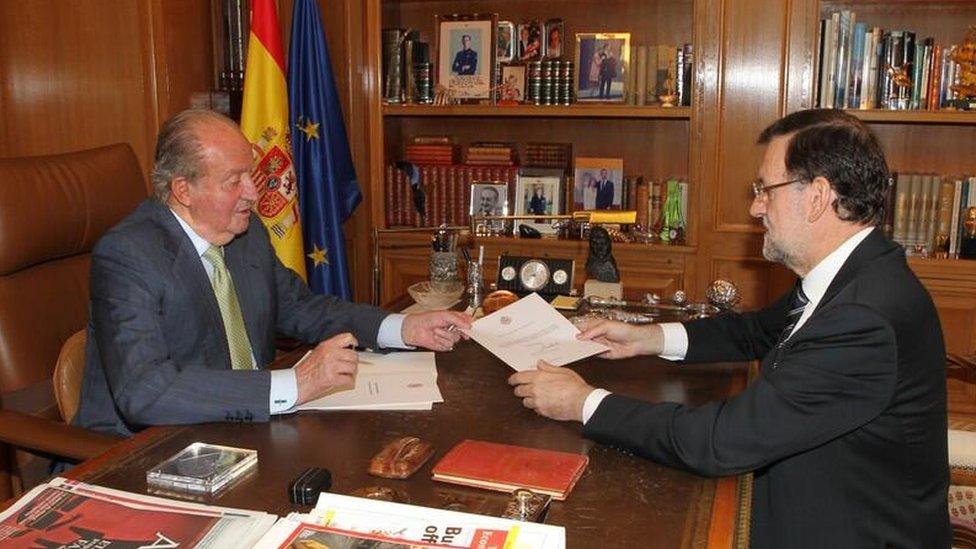
King Juan Carlos of Spain has decided to abdicate, Prime Minister Mariano Rajoy has announced.
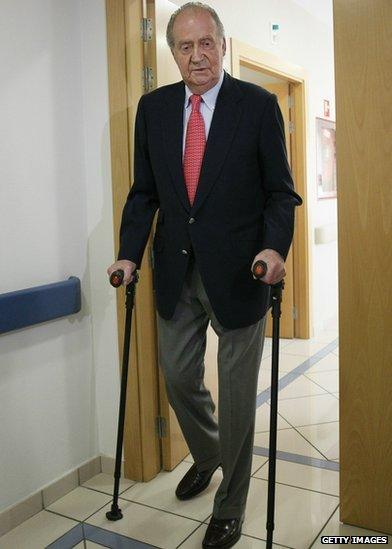
"His Majesty King Juan Carlos has just informed me of his desire to renounce the throne and begin the process of succession," Mr Rajoy said in a short statement. He said the king was stepping down for personal reasons. His health is failing and he has had a number of hip operations in recent years.
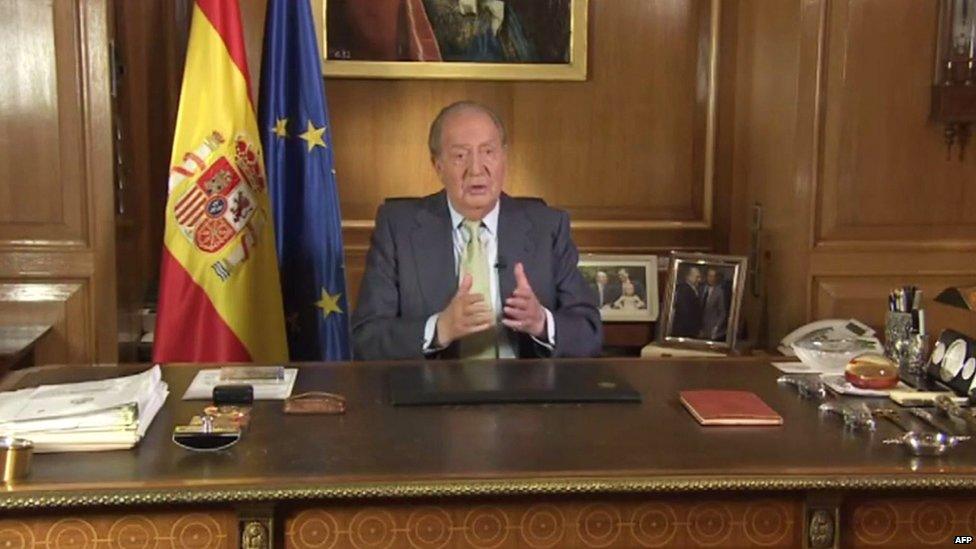
In a televised address Juan Carlos said: "A new generation must be at the forefront... younger people with new energies."
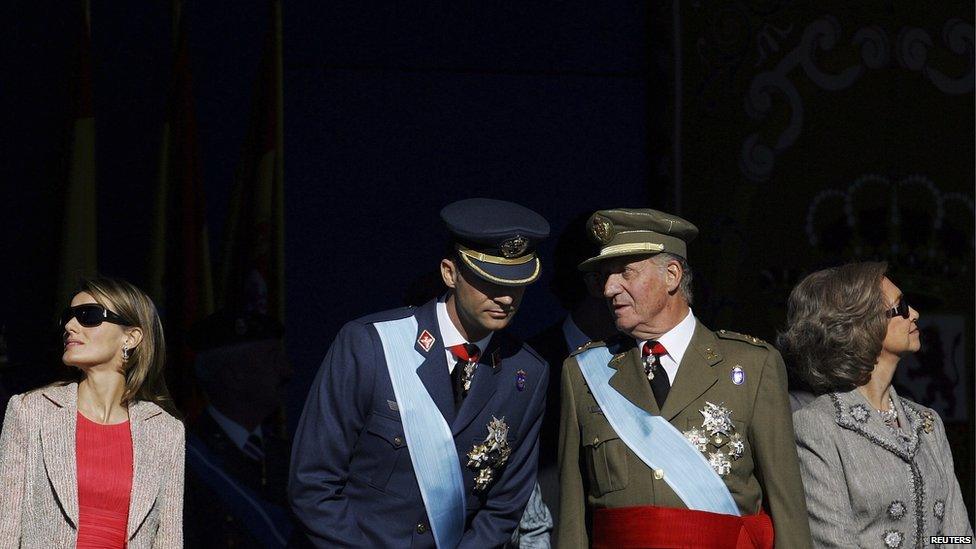
The king's son, Crown Prince Felipe, 45, will take over the throne.
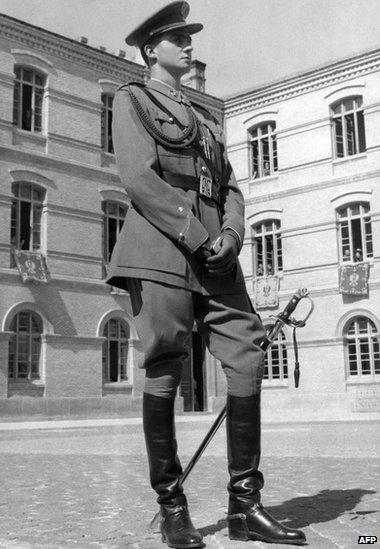
Born in exile in 1938, Juan Carlos was allowed to attend a Spanish school in Madrid before joining the military and attending university. He married Princess Sofia of Greece in 1962.
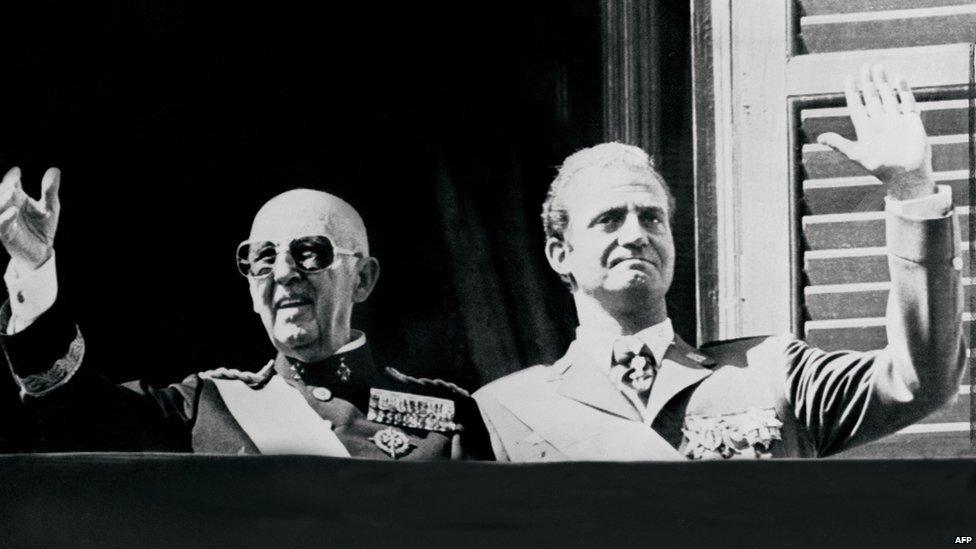
When Juan Carlos took over from General Franco, he became Spain's first crowned head of state for 44 years.
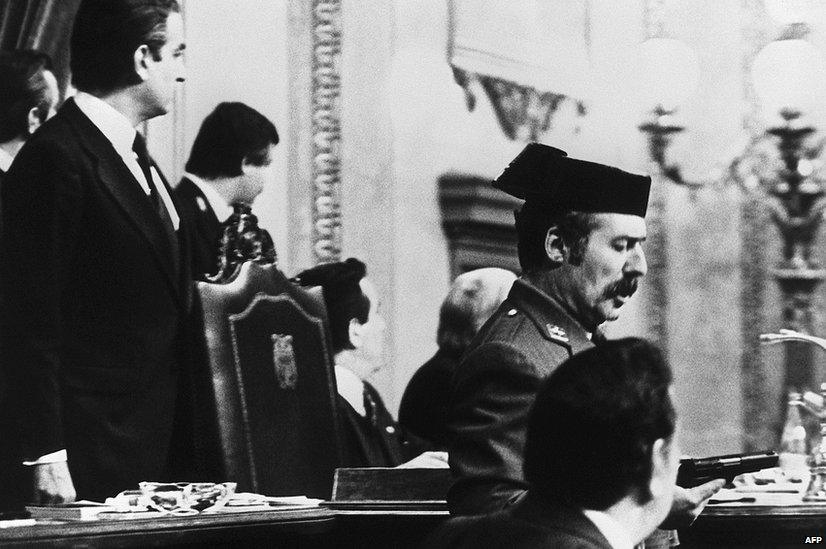
In 1981 rebels seized parliament in an attempt to prevent the appointment of a new Union of the Democratic Centre government. Juan Carlos made a televised address demanding an end to the coup and the plotters surrendered.
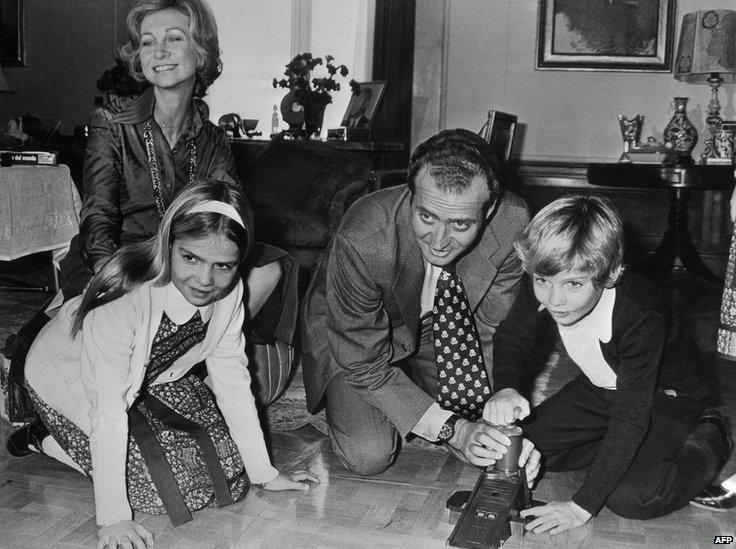
For much of his reign, Juan Carlos was seen as one of the world's most popular monarchs, but recently many Spaniards have lost confidence in him.
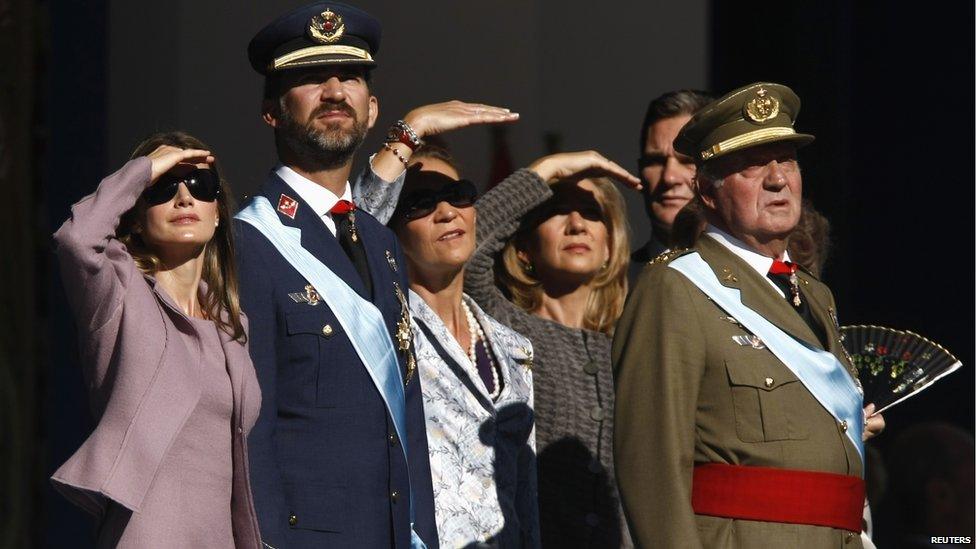
His reputation has been tarnished by a long-running corruption investigation into his daughter and her husband.
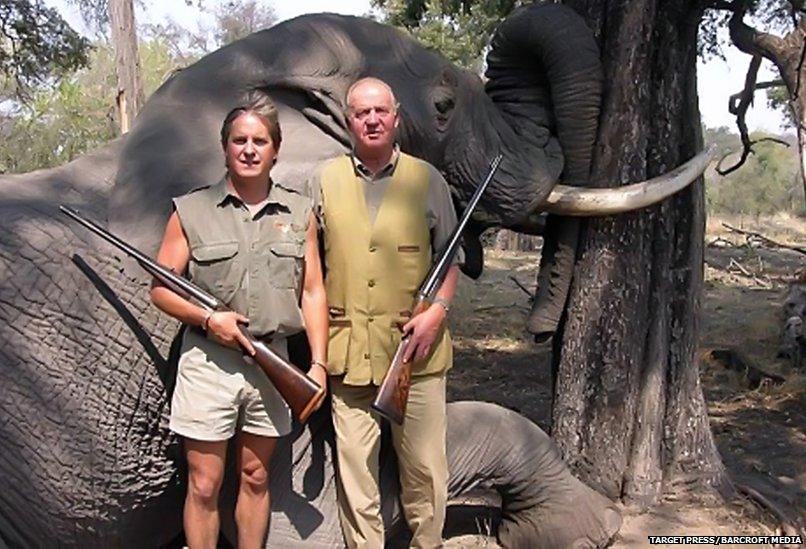
Support for the king fell further when it was discovered he had been on a lavish elephant hunting trip to Botswana in April 2012, in the middle of Spain's financial crisis.
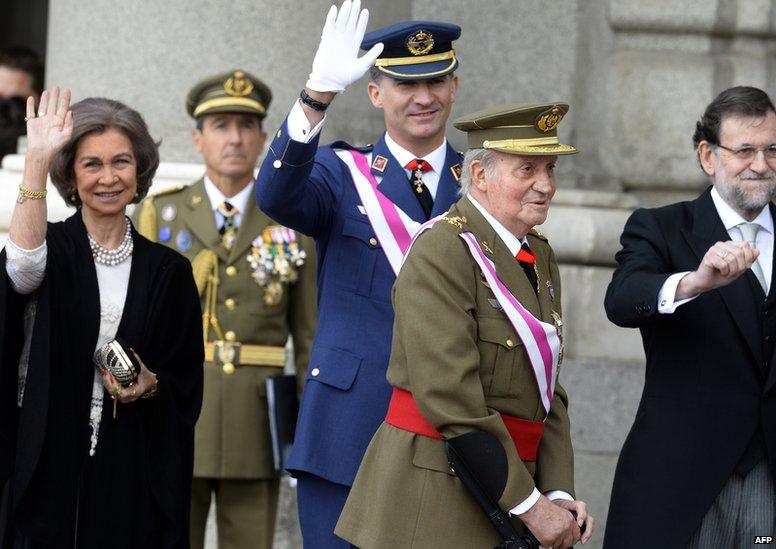
As the years went on the king involved himself less in day-to-day politics, and became more of a figurehead.
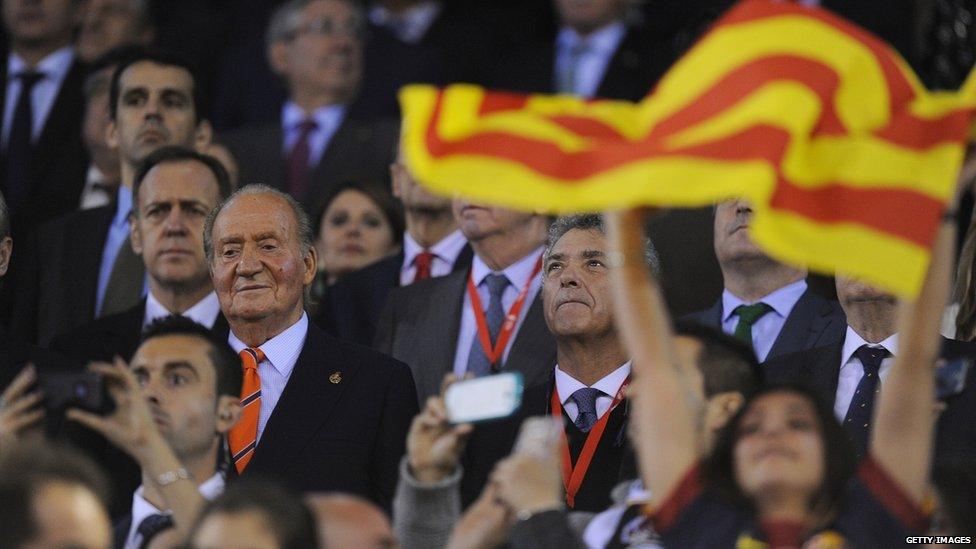
He has been credited as a stabilising force for independence-minded areas such as Catalonia and the Basque region.